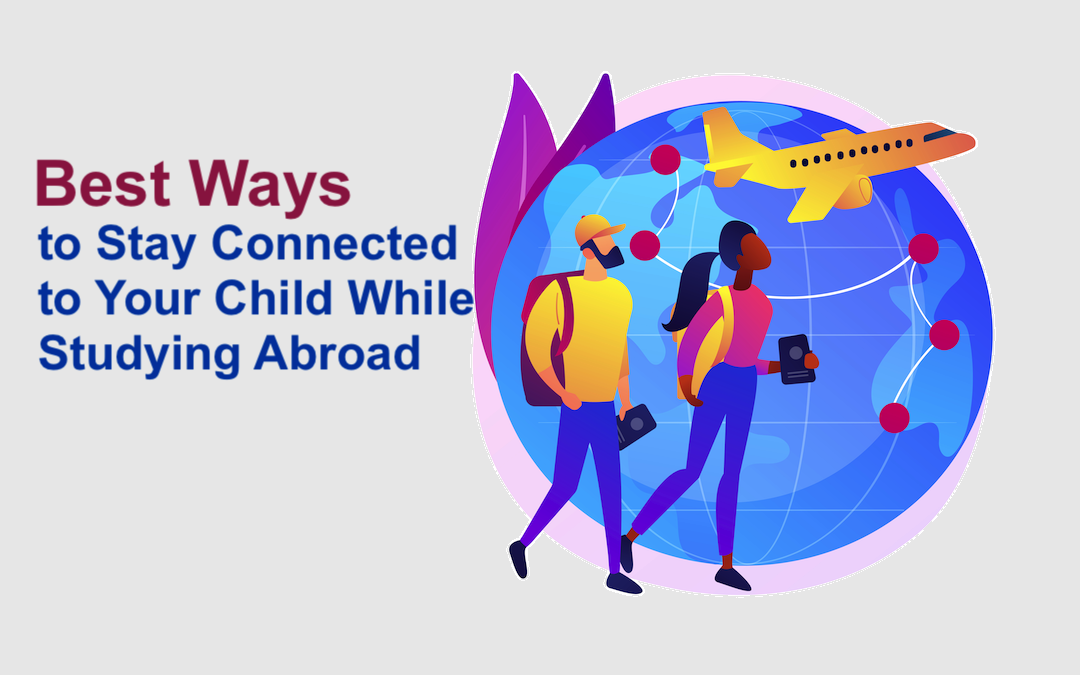
Studying abroad is both a moment of pride and a challenging pursuit for a child. Every parent must focus on several factors, including cultural differences, language barriers, and prospective challenges. If you want to ensure your child’s safety, well-being, and activities abroad, keeping tabs on them is essential, and this will only be possible when you stay connected to your child. Are you worried about how you and your child will stay connected to each other despite long distances? If that’s the case, look nowhere else. Step into this informative blog post that will help you stay by your child’s side throughout their stay abroad.
1. Send Gifts and Financial Support
When it comes to brightening your child’s days and nights abroad, think about sending thoughtful care packages filled with their favorite snacks, personal items, or handwritten diaries. Be sure that a diary contains words of love and encouragement, which will inspire them to achieve what they want most. Additionally, financial support also makes your child’s life more fulfilled and hassle-free. All you need to do is find the best way to send money abroad and fair currency exchange rates to make safe and successful financial transactions. Remember, the act of sending both gifts and financial help from home is not just a practical gesture but a deeply emotional one. It's a way to remind your child that they are always cared for, no matter how long the distance is.
2. Establish a Regular Communication Schedule
Specify days and times every week for video calls or phone conversations with your child to ensure reliable and consistent communication. Ensure that you and your child set an agreed-on schedule – like Sunday evenings or Wednesday afternoons. Once you establish this comforting routine, you'll find that it provides a sense of normalcy and emotional support to your child, even amidst their hectic study plans.
3. Utilize Technology for Instant Updates
Leveraging the power of technology is another best way to stay connected to your child while studying across borders. You can use the best messaging app, social media platforms like Facebook, Instagram, etc., and email for quick updates throughout the day. A simple text, a social media story, and an email sharing filled with thoughts and precious pieces of advice will foster an ongoing dialogue. This connection enables you to share both joys and challenges, strengthening your bond even from a distance.
4. Share Experiences through Photos and Videos
Encourage your child to send snapshots or short videos capturing moments from their daily life. Whether they're marveling at a stunning sunset in a foreign city, indulging in local street food, or huddled in a library, sharing videos and snaps will inform patients where their children are, what they are doing, and other activities. Additionally, suppose your child shares snippets of life back home, such as a favorite dinner or a pet doing something silly. In that case, you must appreciate them, which will create rich experiences and let them feel more confident and encouraged. Thus, you and your child will be more engaged and connected to each other’s lives.
5. Engage in Online Activities Together
The next effective step you should take is to plan virtual activities that you can enjoy together – such as movie nights where you both can watch films simultaneously. Joining online gaming sessions will give shared experiences. While video chatting, cooking the same recipe will also make your interaction more memorable. Hence, all these virtual activities will help cultivate new memories, deeper engagement, and fun, bridging the long distance.
Wrap Up
Studying abroad is a transformative experience for a child, but it also comes with its challenges, making it crucial for parents to stay connected. From sending thoughtful care packages and financial support to establishing regular communication schedules, parents can provide emotional and practical support despite the distance. Leveraging technology for instant updates, sharing photos and videos, and engaging in virtual activities together can bridge the gap, creating shared experiences and fostering a strong bond. This connection ensures that even across borders, a child feels cared for, supported, and encouraged throughout their journey.
Share this post
Leave a comment
All comments are moderated. Spammy and bot submitted comments are deleted. Please submit the comments that are helpful to others, and we'll approve your comments. A comment that includes outbound link will only be approved if the content is relevant to the topic, and has some value to our readers.

Comments (0)
No comment